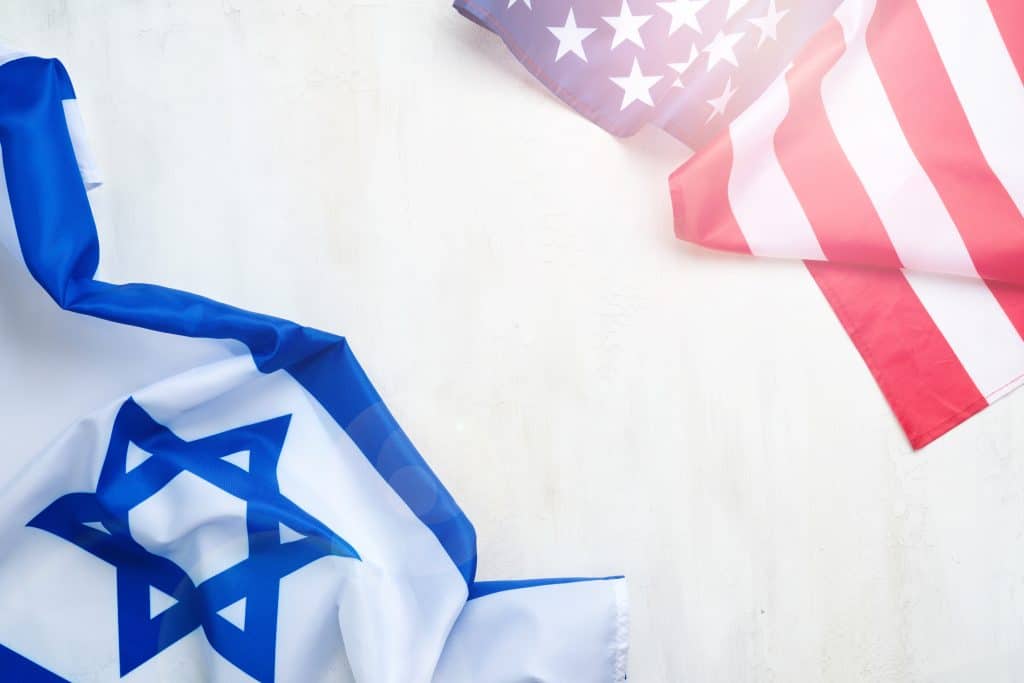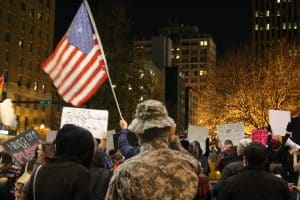Israeli Embassy shooting Washington DC: What happened?


The Israeli Embassy shooting in Washington DC has left the public in shock, raising significant questions about the safety of diplomatic missions and the necessary measures to protect both staff and the general public.
This alarming event has brought into focus the need for more robust security protocols at sensitive locations such as embassies.
As the Israeli Embassy becomes a focal point in these discussions, authorities are actively responding to the threat. Let’s delve into the details of what happened and the actions being taken in response.
Background on the Israeli embassy in Washington DC
The Israeli Embassy in Washington DC plays an essential role in upholding the diplomatic relationship between the United States and Israel.
Not only does it serve as a venue for official meetings and discussions, but it also acts as a cultural bridge, promoting mutual understanding between the two nations.
The embassy is at the heart of a strategic partnership that has flourished for decades, and its significance extends far beyond simple diplomacy.
Historical Significance of the Israeli Embassy
Founded in the early 1940s, the Israeli Embassy in Washington DC has undergone many transformations.
Over time, it has become a symbol of the enduring relationship between Israel and the U.S. Its establishment, particularly after Israel’s independence, marked a turning point in bilateral ties. Over the years, the embassy has facilitated:
- Major Political Agreements: The embassy has been the site of significant negotiations, including landmark peace agreements, military cooperation, and economic partnerships that have shaped Middle Eastern diplomacy.
- High-Profile Visits: The Israeli Embassy regularly hosts visits from Israeli dignitaries, heads of state, and political leaders, which serve to further strengthen ties with U.S. counterparts.
- Increasing Collaboration in Various Sectors: Beyond politics, the embassy has been a driving force in fostering technological partnerships, particularly in cybersecurity, innovation, and military collaboration. The growth of these sectors has brought about a new era of cooperation between Israel and the U.S.
This historical foundation lends the embassy its continued strategic importance, both for Israel and for international diplomacy. It remains central to Israel’s foreign policy and represents the shared interests and values between the two nations.
The Architecture and Symbolism of the Israeli Embassy
The architecture of the Israeli Embassy is a reflection of Israel’s national identity. Combining modern design with traditional elements, the embassy’s structure mirrors the fusion of Israel’s ancient heritage with its contemporary influence on the world stage.
The building stands as a symbol of strength and resilience, embodying Israel’s journey from a young nation to an influential global player.
-
Modern Design: The embassy’s sleek, modern lines showcase Israel’s technological advancements and progressive approach to global challenges.
-
Traditional Elements: At the same time, elements of Israeli heritage are subtly woven into the building’s design, signifying the rich cultural and historical roots that continue to shape the nation’s identity.
Location and Accessibility
The Israeli Embassy is strategically located on International Drive in Washington DC, an area known for its proximity to other embassies, making it a hub of diplomatic activity.
The embassy’s location symbolizes Israel’s deep integration into global affairs, with easy access to both official visitors and the public. Its position is not just geographical—it’s a representation of Israel’s central role in international diplomacy.
- Public Engagement: The embassy is a key player in facilitating public diplomacy, with regular cultural events, exhibitions, and educational programs designed to engage the local community and promote Israeli culture.
- Cultural Programs: These programs are vital in building bridges between nations, allowing visitors from all backgrounds to learn about Israel’s history, traditions, and modern-day contributions to the world.
This accessibility makes the Israeli Embassy not only a diplomatic center but also a cultural and educational resource, fostering a deeper understanding between Israel and the U.S. and ensuring the relationship remains strong as global circumstances evolve.
The Evolving Role of the Israeli Embassy
As global events unfold, the role of the Israeli Embassy in Washington DC continues to evolve. In recent years, its functions have expanded to include:
- Political Leadership: Representing Israel’s interests in political and diplomatic spheres, particularly in relation to U.S.-Israel relations.
- Security and Defense Initiatives: Working closely with U.S. agencies to address regional security concerns, especially in the Middle East.
Details of the Shooting Incident at the Israeli Embassy in Washington DC
The Israeli Embassy shooting in Washington DC unfolded quickly, attracting significant media attention and raising serious concerns about the safety of diplomatic missions.
On that fateful day, authorities received reports of multiple gunshots fired near the Israeli Embassy, leading to immediate confusion and panic in the area.
The incident prompted swift action from law enforcement and embassy personnel, marking a critical moment in embassy security protocols.
The Shooting Incident Unfolds
-
Initial Reports:
As soon as the gunfire erupted, police were alerted, and the surrounding area quickly became a scene of chaos. Eyewitnesses reported hearing loud bangs and seeing individuals running for their lives.
The atmosphere was tense as the sound of gunfire reverberated around the Israeli Embassy grounds.
-
Law Enforcement Response:
Law enforcement agencies responded immediately to contain the situation. Officers rushed to assess the scene, while emergency services were deployed to secure the area and assist any injured individuals.
The urgency of the situation underlined the critical importance of swift emergency response in protecting both embassy personnel and the public.
The proximity of the shooting to the Israeli Embassy only added to the sense of vulnerability surrounding such high-profile diplomatic institutions.
The incident underscored the need for constant vigilance in maintaining security around sensitive locations like the Israeli Embassy.
Emergency Response
In response to the Israeli Embassy shooting incident, emergency services were swiftly deployed to handle the unfolding crisis.
Their actions highlighted the importance of preparedness when dealing with such emergencies, particularly when involving a diplomatic mission.
Key components of the emergency response included:
- Securing the Perimeter: Law enforcement quickly established a secure perimeter around the Israeli Embassy to prevent further escalation and protect civilians and embassy staff.
- Evacuating Civilians and Staff: In the early moments of the crisis, efforts were made to evacuate civilians and embassy employees to safer locations, ensuring minimal risk to the public.
- Engaging with Potential Suspects: Authorities engaged with suspects at the scene to assess any further threats. Their primary focus was on preventing additional harm and investigating whether the incident was an isolated act or part of a larger plot.
These coordinated efforts demonstrate how critical inter-agency collaboration is in managing situations that involve high-profile targets, such as diplomatic facilities like the Israeli Embassy.
The rapid mobilization of local and federal law enforcement agencies ensured that the situation did not escalate further.
Investigation and Motives
As soon as the scene was under control, an investigation was launched to uncover the motives behind the shooting at the Israeli Embassy. Authorities sought to gather evidence, interview witnesses, and establish a clear timeline of events.
As more details emerged, the investigation focused on determining whether the incident was a targeted attack or a random act of violence.
- Witness Interviews: Investigators began interviewing eyewitnesses who had been in the area at the time of the shooting. Their testimonies were crucial in piecing together the sequence of events and understanding the nature of the attack.
- Forensic Evidence: Forensic teams arrived on the scene to gather evidence, including ballistics data and any surveillance footage from the embassy’s cameras. This information was vital in helping authorities piece together what happened and who was responsible.
The Israeli Embassy shooting brought to light the security challenges that embassies face in an increasingly volatile global environment.
Whether the attack was politically motivated or driven by other factors, the event emphasized the necessity for constant vigilance and robust security protocols to protect diplomatic personnel.
Reactions from officials and public

The reactions from officials and the public following the shooting incident at the Israeli Embassy in Washington DC were both swift and widespread, underscoring the gravity of the attack on such a vital diplomatic mission.
As news of the shooting broke, leaders across various sectors expressed their shock and concern about the safety of diplomatic missions, particularly those in high-risk environments like the Israeli Embassy.
Government Responses
- Local Official Statements:
Local officials, including the mayor and police chief of Washington DC, held immediate press conferences to address the situation and reassure the public.
They emphasized that the Israeli Embassy attack would not go unpunished, vowing to investigate the incident thoroughly.
These public declarations were aimed at maintaining trust in law enforcement and signaling a firm stance against violence targeting diplomatic entities.
- Public Safety Focus:
Officials from the U.S. government highlighted the importance of protective measures for embassies and pledged to enhance security protocols to prevent future incidents.
They made it clear that such violent acts targeting diplomatic facilities are unacceptable and that stronger security measures are a necessity to safeguard diplomatic staff and the public.
Public Sentiment and Social Reactions
As more details emerged about the shooting, public sentiment was mixed, with a palpable sense of fear followed by expressions of solidarity.
Many citizens took to social media platforms to share their thoughts, conveying their sympathy for those affected by the violence.
- Empathy and Support:
Posts included messages of support for the Israeli Embassy staff, as well as calls for peace and unity.
Social media platforms served as an important space for people to express their concerns over increasing violence against diplomatic missions worldwide.
- Rising Concerns:
Many voiced deep concern about the growing trend of violence directed at diplomatic missions and embassies.
The Israeli Embassy shooting amplified worries about the vulnerability of such high-profile institutions, leading many to question the effectiveness of current security protocols.
Community Engagement
- Peaceful Demonstrations:
In response to the incident, community leaders organized peaceful gatherings to show their support for the Israeli Embassy and to stand against violence.
These events served as a display of solidarity, emphasizing the importance of unity in the face of adversity.
- Increasing Dialogue on Security:
The shooting sparked discussions in local communities about the increasing threats embassies face.
Public forums and online debates centered around the importance of stronger security measures and how to address the growing challenges to diplomatic security.
International Responses
The international community quickly joined the conversation, with leaders from around the world condemning the Israeli Embassy shooting and reaffirming their commitment to protecting diplomatic missions.
Global Solidarity
Many countries, including Israel’s allies, expressed their solidarity with Israel, emphasizing the need for global cooperation in ensuring the safety of diplomatic personnel and embassy staff.
Statements were released from numerous foreign governments, each denouncing the attack and reinforcing the need for stronger international safeguards for diplomatic institutions.
Symbolism of Embassies
The global response underscored the symbolic importance of embassies. They are not merely physical buildings; they represent the values of international cooperation and diplomacy.
Attacks on embassies are not only acts of violence but also threats to the international order and the rules of engagement between nations.
The collective response, both local and international, highlighted how such incidents reverberate far beyond national borders.
They emphasize the critical role embassies play in facilitating global dialogue and maintaining peace, and they underscore the need for continuous vigilance in protecting diplomatic missions worldwide.
Impact on US-Israel relations

The impact on US-Israel relations following the shooting incident at the Israeli Embassy in Washington DC has been significant and multifaceted.
This event has triggered discussions not only about security but also about the broader implications for diplomatic ties between the two nations.
In the wake of the incident, officials from both countries emphasized their commitment to a strong alliance. Statements were issued declaring that such acts of violence would not undermine the enduring bond that exists between the US and Israel.
This incident served as a stark reminder of the challenges faced in maintaining diplomatic security.
Strengthening Security Measures
In response to the threats posed by the shooting, discussions around enhancing security measures at embassies became crucial. Both governments recognized the urgent need to implement stronger protocols, which may include:
Increased Police Presence Around Embassies
One of the key measures discussed was the increased police presence around embassies, especially high-profile ones like the Israeli Embassy.
A visible law enforcement presence acts as both a deterrent to potential attackers and a reassurance to the public and embassy staff.
By increasing patrols and having armed officers stationed near the embassy, the chance of preventing such attacks or quickly responding to a threat is significantly heightened.
Improved Communication Between US and Israeli Security Agencies
Both US and Israeli authorities have emphasized the importance of improving communication between security agencies.
Establishing direct and fast communication lines between the Israeli Embassy and U.S. security forces ensures quick responses to any security breaches or threats.
Additionally, this collaboration enables both nations to exchange intelligence and prepare for potential security challenges, enhancing preparedness on all fronts.
Collaborative Training Programs Focusing on Threat Responses
To enhance preparedness, collaborative training programs between U.S. and Israeli security forces have been emphasized.
These programs aim to improve coordination and provide officers with the skills needed to handle various threats.
Scenario-based drills, focusing on active shooter situations, bomb threats, and other potential risks, are designed to ensure both embassy security personnel and law enforcement are well-prepared to respond effectively in a crisis.
The goal of these security improvements is to ensure that both diplomats and citizens feel safe during intergovernmental interactions.
These actions are essential for maintaining the integrity of diplomatic functions and the safety of those who work and visit these embassy spaces.
Broader Diplomatic Context
This incident has also influenced ongoing discussions regarding peace initiatives in the region. The US, as a long-time ally of Israel, continues to play a pivotal role in Middle Eastern diplomacy.
The attack raised questions about the stability of diplomatic relations, particularly amidst ongoing conflicts in the area.
- US-Israel Alliance: The incident did not diminish the strong alliance between the U.S. and Israel but underscored the vulnerabilities both countries face in maintaining security. Despite the attack, both nations reiterated their commitment to peace-building efforts in the region.
Moreover, public opinion in both countries may shift in response to such incidents. Advocating for safety and dialogue is essential to fostering mutual understanding and support for diplomatic efforts.
Ultimately, the shooting incident highlighted the delicate nature of US-Israel relations and the importance of sustained efforts to promote peace and security in the region.
It serves as a reminder that even amidst challenges, both nations must work closely together to address threats and enhance cooperation.
The attack on the Israeli Embassy is a critical moment in understanding the global challenges facing embassy security and the need for ongoing efforts to safeguard diplomatic missions worldwide.
Security Measures Post-Incident
Following the shooting incident at the Israeli Embassy in Washington DC, new security measures were implemented to ensure the safety of both the embassy staff and the public.
The incident underscored the need for a thorough review of current protocols and an enhancement of security systems around diplomatic missions.
Immediately after the incident, an emergency meeting was convened between US and Israeli security officials. This meeting focused on identifying weak points and developing an action plan to address them comprehensively.
One key area of focus was to increase surveillance measures.
Enhanced Surveillance
Many embassies have now adopted advanced surveillance technology to monitor their surroundings continuously. Important features of these expanded measures include:
- Installation of high-definition cameras covering all entry and exit points.
- Real-time monitoring systems operated by trained security personnel.
- Integration of artificial intelligence to analyze patterns and detect unusual activities.
These upgrades aim to provide a safer environment by allowing for quicker responses to potential threats.
The enhanced surveillance capabilities allow for constant vigilance, providing security teams with real-time data to act swiftly should a threat arise.
Increased Personnel Presence
Another crucial measure taken post-incident is the significant increase in security personnel around the embassy.
This addition helps ensure that there is always a visible security presence. This presence serves as a deterrent against any potential violence and also offers immediate assistance in case of emergencies.
Security teams received additional training programs to prepare them for various scenarios, enhancing their ability to respond effectively.
They work in close coordination with local law enforcement, ensuring a rapid response if needed.
The embassy also introduced a system for visitor screenings. Anyone entering must undergo a thorough identification verification process, including screening for prohibited items.
These alterations are vital in increasing overall security for all visitors and staff members present at the Israeli Embassy. This proactive approach enhances both physical safety and operational readiness in the face of potential threats.
Analysis of embassy security protocols

The analysis of embassy security protocols is crucial for understanding how to effectively protect diplomatic missions in today’s world.
Embassies are high-profile institutions that represent a country’s interests abroad, and their security is a priority not only for the host country but also for the nation they represent.
Recent incidents have highlighted that existing security measures need to be thoroughly reviewed and potentially updated to enhance safety for both personnel and visitors.
The Complexity of Embassy Security
Embassies are unique environments that require specialized security strategies. These strategies are not one-size-fits-all and need to address the specific needs of each mission.
The security framework must encompass a wide range of measures, including both physical and procedural components, to ensure the safety of all individuals within the embassy’s premises.
Embassy security involves more than just physical barriers—it’s a comprehensive approach that includes surveillance, personnel training, and collaboration with law enforcement agencies.
A key aspect of embassy security is the need for continuous monitoring, vulnerability assessments, and adaptation of protocols to meet emerging threats.
Components of Security Protocols
Embassy security protocols typically involve several integral components that work together to create a layered security approach. These components include:
- Access Control: The first line of defense, this system ensures that only authorized personnel and visitors are allowed to enter the building. It includes ID verification, security checks, and the use of advanced biometric systems to ensure that only trusted individuals gain access to sensitive areas.
- Regular Security Drills: Embassies regularly conduct security drills to prepare staff for a variety of emergency situations. These drills are vital for ensuring that staff members know how to respond swiftly and effectively to different types of security threats, including armed attacks or evacuation procedures during natural disasters.
- Collaboration with Local Law Enforcement: Embassies often collaborate with local law enforcement agencies to enhance response capabilities. This includes sharing intelligence on potential threats, coordinating patrols around the embassy area, and ensuring rapid assistance during incidents.
These security components work together to form a comprehensive defense system.
Each measure is designed to address specific risks, helping ensure that the embassy remains a secure environment and can continue its diplomatic functions without disruption.
Assessing Vulnerabilities
The recent Israeli Embassy shooting highlighted certain vulnerabilities in current embassy security protocols.
Embassies must constantly assess and address these weaknesses to prevent future incidents. Vulnerability assessments focus on various critical areas:
- Physical Barriers: While embassies are often equipped with fences and gates, it’s important to assess whether these barriers provide sufficient protection. Reinforcing physical barriers like walls, entry points, and perimeter fences ensures that unauthorized access is minimized.
- Monitoring Systems: The integration of advanced surveillance technologies, such as high-definition cameras, motion detectors, and alarms, is critical for providing continuous monitoring of the embassy grounds. These systems are necessary to detect suspicious activities and prevent potential attacks before they escalate.
- Security Personnel Training: The effectiveness of security personnel can make or break the success of an embassy’s security system. Continuous training ensures that security officers are prepared to handle a variety of threats, from armed intruders to cyberattacks. Additionally, training drills help staff respond effectively to a real-world crisis.
By conducting regular vulnerability assessments, embassies can tailor their protocols to address specific weaknesses. The ongoing evaluation and improvement of security protocols is necessary to adapt to ever-evolving threats.
Feedback and Ongoing Improvement
A crucial part of embassy security is learning from past incidents. Feedback from security personnel during drills and real-world events helps refine security protocols.
This feedback loop ensures that embassies can continuously update their protocols to account for new tactics used by potential threats.
The Israeli Embassy shooting has underscored the importance of robust security measures and comprehensive protocols.
By analyzing incidents and adapting security strategies, embassies can better protect themselves from potential risks.
Strengthening the Safety of Diplomatic Missions
The Israeli Embassy shooting in Washington DC serves as a stark reminder of the constant need for improved security at diplomatic missions worldwide.
The swift actions taken by both U.S. and Israeli authorities highlight the importance of collaboration in ensuring the safety of embassy staff and visitors.
As both nations work together to implement stronger security measures, this incident underscores the need for constant vigilance in the face of evolving threats.
The commitment to reinforcing diplomatic security is essential to protecting the core values of international cooperation and peace.
For more information, check out these sources:
FAQ – Questions about the Israeli Embassy Shooting Incident
What prompted the enhanced security measures at the Israeli Embassy?
The shooting incident at the Israeli Embassy led to a thorough review and update of security protocols to better protect staff and visitors.
How does the US-Israel collaboration impact embassy security?
The collaboration ensures that both nations work closely to strengthen security measures and share intelligence on potential threats.
What types of security protocols were analyzed after the incident?
Protocols such as access control, surveillance systems, and emergency response drills were assessed for vulnerabilities and improvements.
How can the public contribute to embassy safety?
Public awareness and reporting of suspicious activities can play a significant role in enhancing overall security at embassies.
Liked the article?





